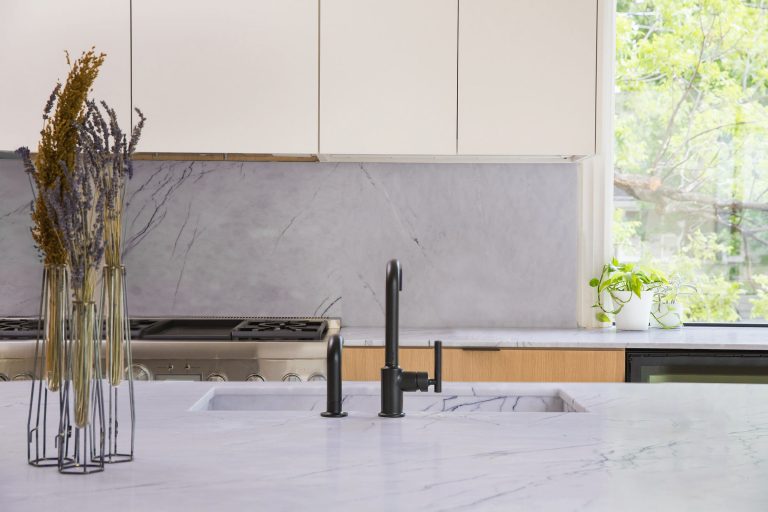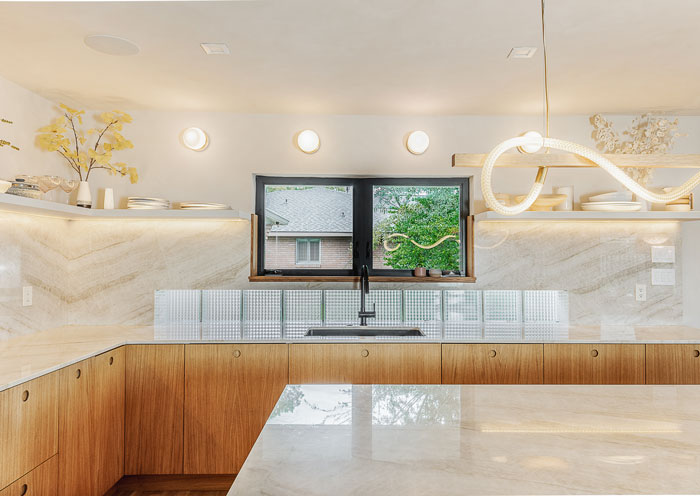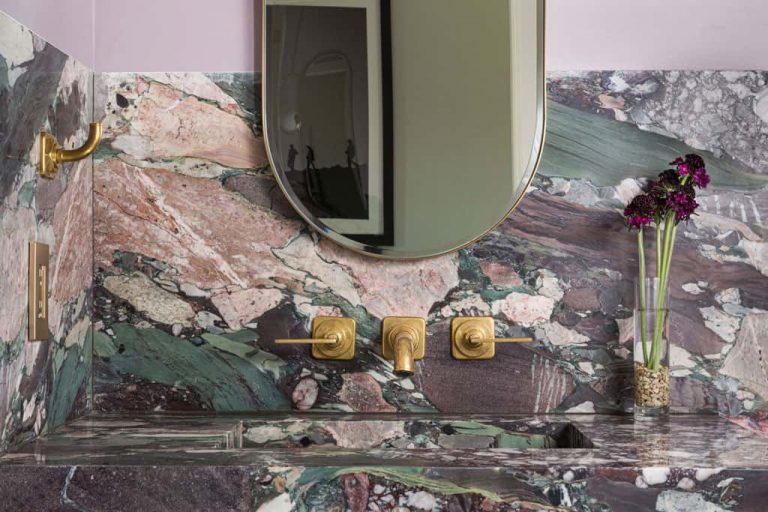THE DIFFERENCE BETWEEN HONED AND POLISHED STONE FINISHES
13/03/2021 - hoàng anh - 2 Comment
When it comes to deciding the finish of your stone, there isn’t a wrong answer. Neither a honed or polished finish impacts the true nature and durability of the stone slab. And some stones are naturally more durable than others (looking at you granite and quartzite). However, for “softer materials” that are more prone to wear, your stone’s finish may add an extra layer of security against stains or camouflage pesky scratches and etches.
SHC GROUP team has a few essential questions to help you decide which finish is best suited for you.

How does their appearance compare to one another?
According to the Marble Institute of America, a polished finish has a glossy surface that reflects light and emphasizes the color and veins of the stone. This means that the details, colors, hues, and vein structure show more prominently, putting more of an emphasis on these natural characteristics of the stone. A high polish finish will bring the stone’s natural color to its fullest because it will ultimately reflect the light and appear more saturated.
On the other hand, a honed finish appears as a satin, smooth surface that will have little reflection of light. It appears flatter and will almost always appear lighter in color. Keep in mind that when a polished stone is honed, the depth, hues, and veins that were once very prevalent may be reduced. The degree of honing depends on the stone you choose, but may vary from light to heavy.

Does your lifestyle match your application?
Are you a perfectionist who prefers everything to look pristine or are you more relaxed when it comes to a little wear?
Those who are looking for something with minimal scratches and etches may find that honed surfaces are well suited for high traffic and heavily used areas, such as countertops and workspaces. Additionally, the matte, smooth surface is less slippery when wet which makes this finish a safer choice for bathroom flooring and staircases.
However, don’t be discouraged if you fall in love with the look of a polished stone but are worried about the thought of scratching and etching. There are plenty of preventative measures you can take. Similarly, if you find a stone that is polished and wish it were honed, a skilled fabricator should be able to change the finish for you.
Scratch & Etch Resistance: Differences between Honed and Polished Finishes
If you are in love with the look of marble, but are not keen on seeing the inherent characteristics associated with the use of marble over time (such as scratches and etches) then consider a honed finish. On a polished finish, a scratch or etch may leave behind a dull, matte mark creating a contrast. Because honed finishes are already matte, the dull marks from scratches and etches are more likely to be camouflaged and go unnoticed.
Having a sealer does not mean that liquids, especially acidic ones like soda or tomato sauce, should be left on countertops overnight, but it does mean that there will be more time to clean up the spills before a permanent mark is made.

Honed and Polished Finishes: Stain Resistance
When properly sealed, both honed and polished finishes are stain-resistant. There is no such thing as a stain proof sealer. If stains are high on your list of concerns, there are a few things to be considered.
A polished finish on a stone is essentially an added layer of security to protect from stains. The process in which a stone is polished helps to close natural pores and create a protective barrier. On the other hand, the pores in a smoothed, honed stone are more receptive to liquid. Side by side, a polished stone surface will have more protection from stains than a honed surface; however, a proper sealer will help to close in open pores and provide stain resistance against most household items.

